|
While perusing through Women in Technology’s announcement for their latest job fair, a question immediately came to mind: why should we still use traditional methods like job fairs?
After all, the internet is populated with job board sites. LinkedIn allows users to share profiles and resumes with recruiters from the palm of their hands. And now there’s an app that features video-based profiles for networking. So, do tech companies and job seekers really need job fairs? Daphne Wotherspoon of Women in Technology (WIT) argues that the answer is yes. Wotherspoon, the Managing Director of WIT with 25 years of experience in staffing industries, acknowledges that social media and online job boards have created plenty of positives in the market. But she continues to believe firmly in the power of face-to-face connection. “The ability to differentiate yourself with you know your handshake, your smile, your personality, your elevator pitch and really your personal brand is often what’s going to get you noticed and at least get you to the interview table,” she said. “It’s really tough to highlight those things on an 8-and-a half and 11 right piece of paper.” As for employers, Wotherspoon told Technical.ly that the traditional platform is still a great opportunity for companies to show of their brand, culture, and understand the nuances of each candidate. Companies in the local DMV area seem to agree, as 70-80 percent of businesses return to their job fairs each year, according to Wotherspoon.
0 Comments
With news of a major breach at Equifax in the headlines, planning for DC CyberWeek seems particularly timely.
To be fair, CyberScoop, part of the D.C.–based tech media company Scoop News Group, planned for the mid-October affair because October is National Cyber Security Awareness month. However, with a data breach that’s impacted potentially 143 million consumers, Greg Otto, Managing Editor for CyberScoop, sees how the fallout emphasizes the urgency of their cause. “We put too much faith in institutions that they’re protecting our information,” Otto explained. “We’re going to come to a point where just as a citizen in America, as a citizen online, you’re going to need to understand how these systems work.” Understanding how these systems work doesn’t necessarily mean running out to grab a graduate degree. Gaining basic knowledge in cyber security can mean simple things like brushing up on password management, understanding if that https:// site is actually secure. There’s also knowledge to be gained at the free week of events during DC CyberWeek. From October 16-20, DC CyberWeek will host talks, panels, receptions and even a startup pitch competition hosted by Eastern Foundry. “We want to bring people together in order to figure out some way so that stuff doesn’t happen as frequently as it is right now,” Otto explained. While that goal may seem broad, Otto and the CyberScoop team believe that their success hinges on their ability to bring people together and form sustainable relationships in the cybersecurity community. After building PR campaigns, studying personal branding and obtaining a Master’s from American University, Mima Firdaws knew that her number one passion centered in public relations. So when a friend, Amine Kriem, approached her about a social networking platform centered on video content, Firdaws dove in head-first. Why? Simply put, “It is about the people,” said Firdaws. Kriem and Firdaws now serve as the cofounders of iZoomIn, a social networking platform that centers on video profiles to build a more effective networking or marketing platform. But wait—can’t we use Instagram for that? Technically, yes, but let’s be real the ‘Gram was designed to capture and share the world’s moments. “iZoomIn is not a platform to rate your popularity or acquire followers, rather it’s a platform to promote your game changing idea,” Firdaws told Technical.ly. Firdaws isn’t too worried about crossover competition or any social media fatigue as video content becomes an increasingly vital way to promote ventures and ideas. The Arlington, Va.–based company’s focus centers on those with a particular message interested in bringing change to an industry or market. Ideally, the app will have a significant impact for startups, particularly at networking events. As D.C. produces more new technology, leaders want to make sure everyone gets a chance to benefit.
That’s the message that the Washington DC Economic Partnership (WDCEP) and the city brought to SXSW last March and WDCEP will now follow up with their inaugural Inclusive Smart Cities Summit. WDCEP, affectionally known as “The Partnership” by Emily Rasowsky, Director of Marketing & Communications for WDCEP, aims to drive business opportunities across all sectors, in part by creating meaningful connections between ventures. Lately, smart cities has become an important avenue of focus. “We’re not just building a connective city with the coolest innovation--which we are,” Rasowsky asserts, “but we’re doing it so that it intentionally benefits and speaks to all people in the population.” Hosted on September 12 at the US Institute of Peace free of charge, the Inclusive Smart Cities summit will break down innovation efforts through three specific lenses—transportation, the workplace, and the workforce—before convening for a collective panel about smart city ideals and initiatives in the city. The companies that are opening coworking spaces and startups adding collaboration space across D.C. often talk about fulfilling demand for flexible workspace. A recent study from Capital One confirmed that there is a lot of interest in such options.
The company’s Work Environment Survey measured the preference of full-time office professionals, with a special focus on millennials, from five major cities across the country, including D.C. According to the survey, 81 percent of D.C. participants surveyed feel that flexible workspaces are important and 76 percent feel that they come up with their best ideas there. Only 41 percent don’t have access to something more than a standard desk and chair. Stefanie Spurlin, VP of Capital One’s Workplace Solutions unit, told Technical.ly that the need for opportunity and choice drove these numbers across the board. So what solutions does Capital One have for businesses? A new meetup in D.C. is looking at how virtual reality is designed.
Alexandra Tobolsky and Kashyap Sridhar created VRUXDC to explore user-centered design principles in the context of virtual, augmented, and mixed reality. The meetup will focus on topics like effective storytelling, motion sickness awareness, sound immersion and usability testing. While there’s lots of focus on expanding technological capabilities in a fast-growing medium, “Human Factors or the user’s experience should be one of the primary design considerations for a product or service,” Tobolsky said. On Tuesday, August 29, VRUXDC will host its first meeting at ByteCubed’s headquarters in Arlington, Va. Following a networking hour, ByteCubed Creative Director Jordan Higgins will share some of the lessons learned from the firm’s work in Microsoft’s Mixed Reality Partner Program. He will also discuss key design principles in understanding 3D holographic computing. There’s lots of talk about being early to a new technology. When it comes to holographic computing, ByteCubed’s Creative Director Jordan Higgins knows that it’s not just about getting there first, but also learning from the right teachers.He and the Crystal City–based government tech consulting firm’s team saw no better instructors than Microsoft’s HoloLens team. The HoloLens headset creates an environment that’s known as mixed reality. There’s no strict definition of mixed reality—along with artificial reality, virtual reality and spatial computing—but in a nutshell, this sector of holographic computing devices allows users to engage with digital content within the confines of the world around them. Microsoft sells two versions of their headset: a development edition, for individuals interested in small scale use, and the commercial suite, ideal for businesses ready to use the holographic technology to enhance their enterprises. Currently, the tech giant runs pilot partnership programs across the U.S. featuring the HoloLens technology–from high school classrooms in Colorado to the Baltimore Ravens. Through their Mixed Reality Partner Program, Microsoft expands their reach to businesses and the overall utility of mixed reality technology. “The HoloLens was one of the first holographic computing devices to become available to developers, and we were really excited to get our hands on it and start creating mixed reality experiences as early as possible,” Higgins told Technical.ly. “As with any new technology, there was a lot to learn about design and development, and there’s no substitute for hands-on experience.”
“Each session we attended featured experts across many areas of mixed reality including technical capabilities, coding, spatial audio, interface design, all the new ways of thinking and creating applications that come with working with this technology,” Higgins said. Now that ByteCubed officially completed training in the Mixed Reality Partner Program, the tech consulting firm wants to define mixed reality on their own terms and expand solutions for technical and visualization problems. Intellectual property law is a tough area to navigate, but it’s important for startups. And since fewer than one in five patents name a female entrepreneur, it’s an issue that’s of great interest to BEACON, the community-led organization to support female entrepreneurs in D.C., supported by Google, Georgetown Law, and Mayor Bowser’s office.
“IP serves as the foundation for many business operations,” BEACON fellow Deloris Wilson told Technical.ly. “and we want to make sure DC’s women entrepreneurs are best equipped to navigate this increasingly complicated space.” BEACON decided to reach out female entrepreneurs in D.C. about their questions and concerns regarding IP law. They received back diverse responses, ranging from patent differentiation, copyright and trademark, the application process and more complicated matters concerning partnership/employee contracts and interstate sales. In response, BEACON created Startup Law 101. The free workshop represents a coupling of “legal training with actual experiences of entrepreneurs who have made IP-errors—and had to fix their mistakes as a result,” Wilson explained. Next month, four women-led startups will pitch for the win at the Vinetta Project’s final showcase of 2017.
On September 14 at Social Tables, the September Female Founder Showcase will feature finalists Yulia Yaani of RealAtom, Meghan Buck of VEDA Data, Steph Speirs of Solstice and Carey Anne Nadeau of Open Data Nation. They were selected after pitching at semifinal events earlier this year. One finalist will walk away with a $20,000 cash prize from Paley Rothman and GSP, as well as four months of office space provided by MakeOffices. The event also offers something for those who might not be pitching. According to last year’s winner Saureen Desai, CMO and cofounder of ShipLync, the Vinetta Project showcases hold a particular value for those female entrepreneurs looking to get more connected to #dctech. “[It’s] an amazing pitch competition to attend specifically for those female entrepreneurs who are a bit wary about the D.C. tech scene and need a place to start connecting the dots,” Desai told Technical.ly. “Attendees will also get first-hand exposure on what it truly takes to raise money from the ground up.” After 54 hours of competition among seven teams at Eastern Foundry, three startups emerged as winners last weekend at Startup Weekend DC: Civic Impact Edition. However, their journeys to success weren’t without a few hurdles. After the event, members of some of the winning teams provided some insight on what it’s like to launch a company over three days.
It starts with a team, and an idea for the business. For the team of cofounders that included Tambra Raye Stevenson, Peter Boyd and Tim Nguyen, identifying a singular business plan to work on presented a challenge right away. They pitched Cottage Foodie, a virtual local farmer’s market that for customers to view the food available, pre-order, pay online, and pick up orders in person. From there, it’s time to start building. Grand prize winner RecruitHer detects gendered language in job postings and provides alternatives to attract more female applicants by using natural language processing and machine learning methods. The team of founders—including Hratch Sofian, Natalie Olivo, Robert Chandler, Yurani Sandoval, Belen Sanchez, Tracy King, and Evann Smith—had a clear takeaway for finding success at a Startup Weekend competition. “[You must] clearly identify the value proposition of your company/product in a single sentence as early as possible,” explained Smith, Founder and Chief Data Scientist. “If you can do this, then the problem you are solving should be clear and direct your path to monetization.” |
Archives
September 2017
Categories
All
|
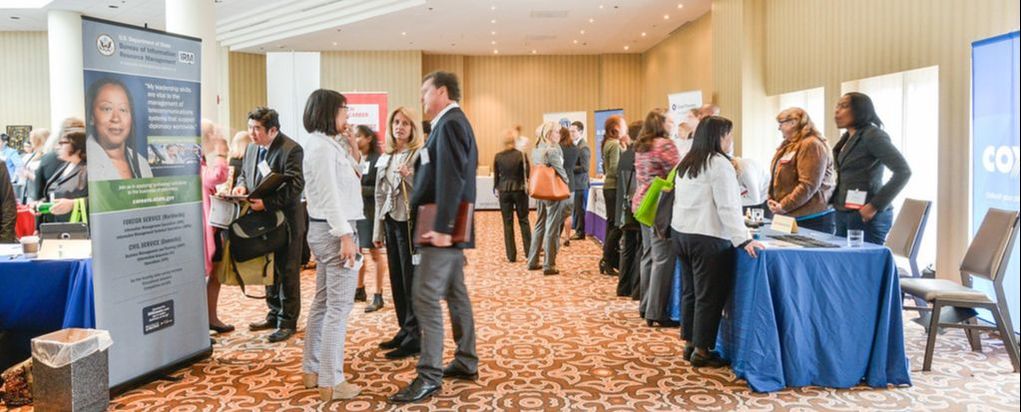
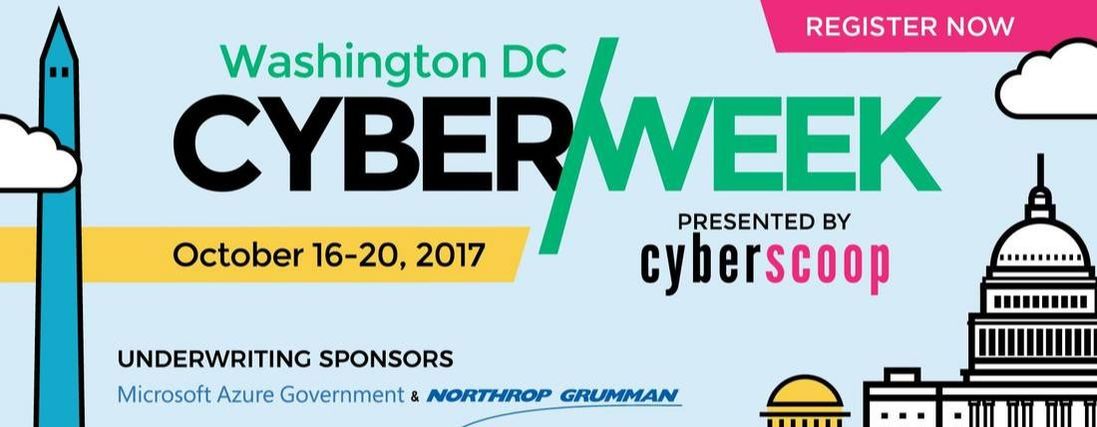
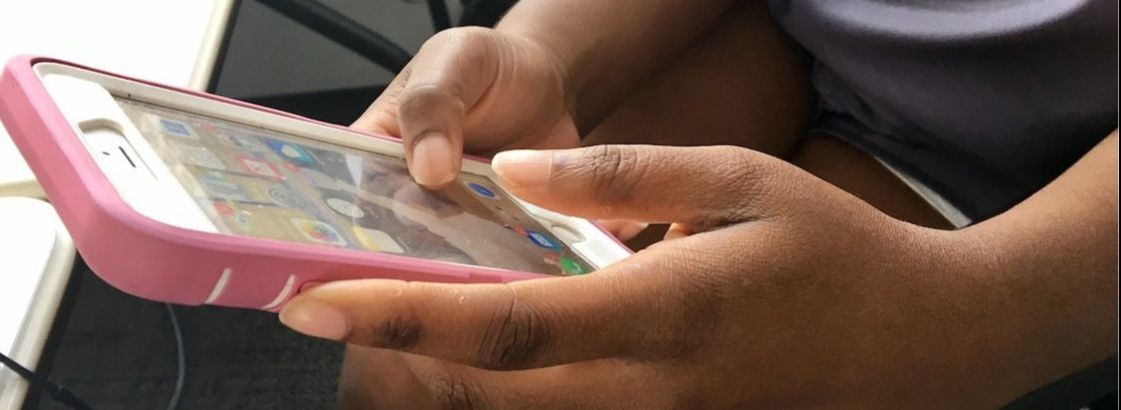


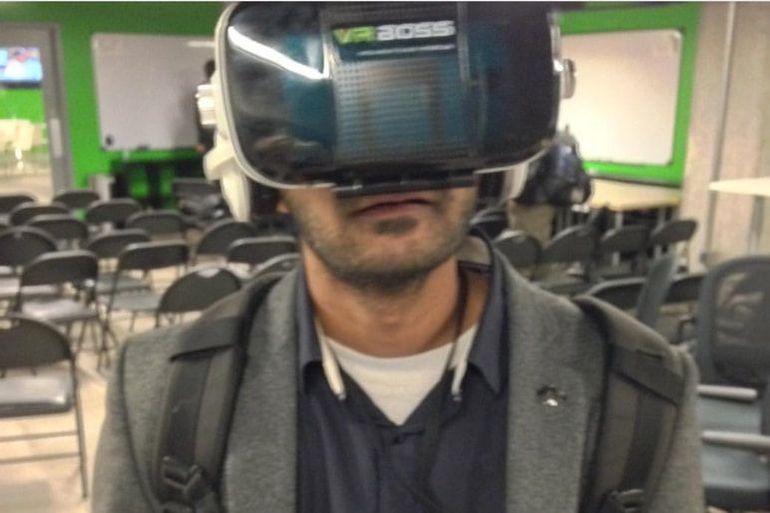
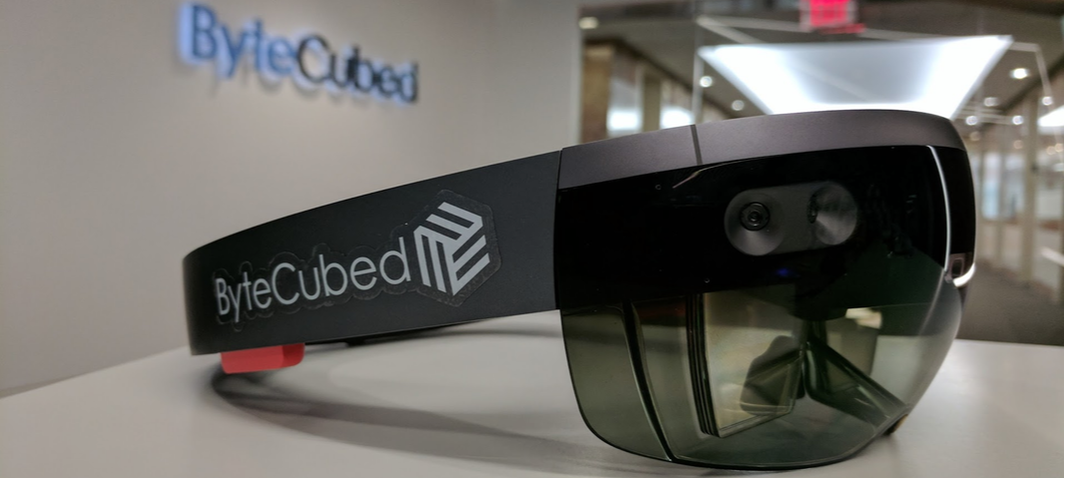
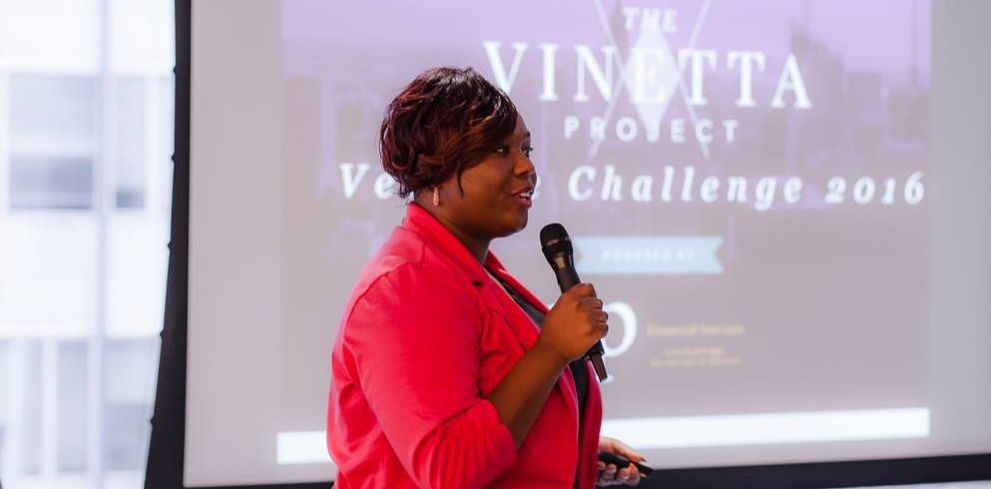
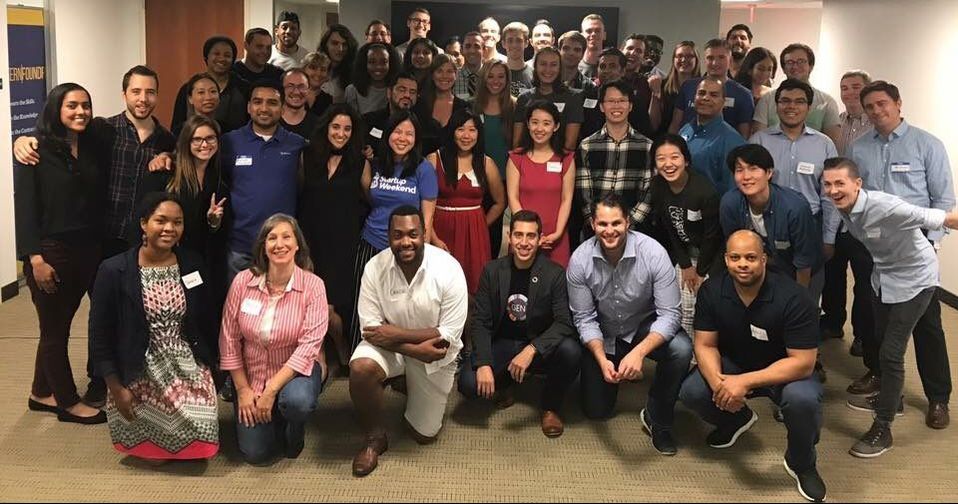
 RSS Feed
RSS Feed
